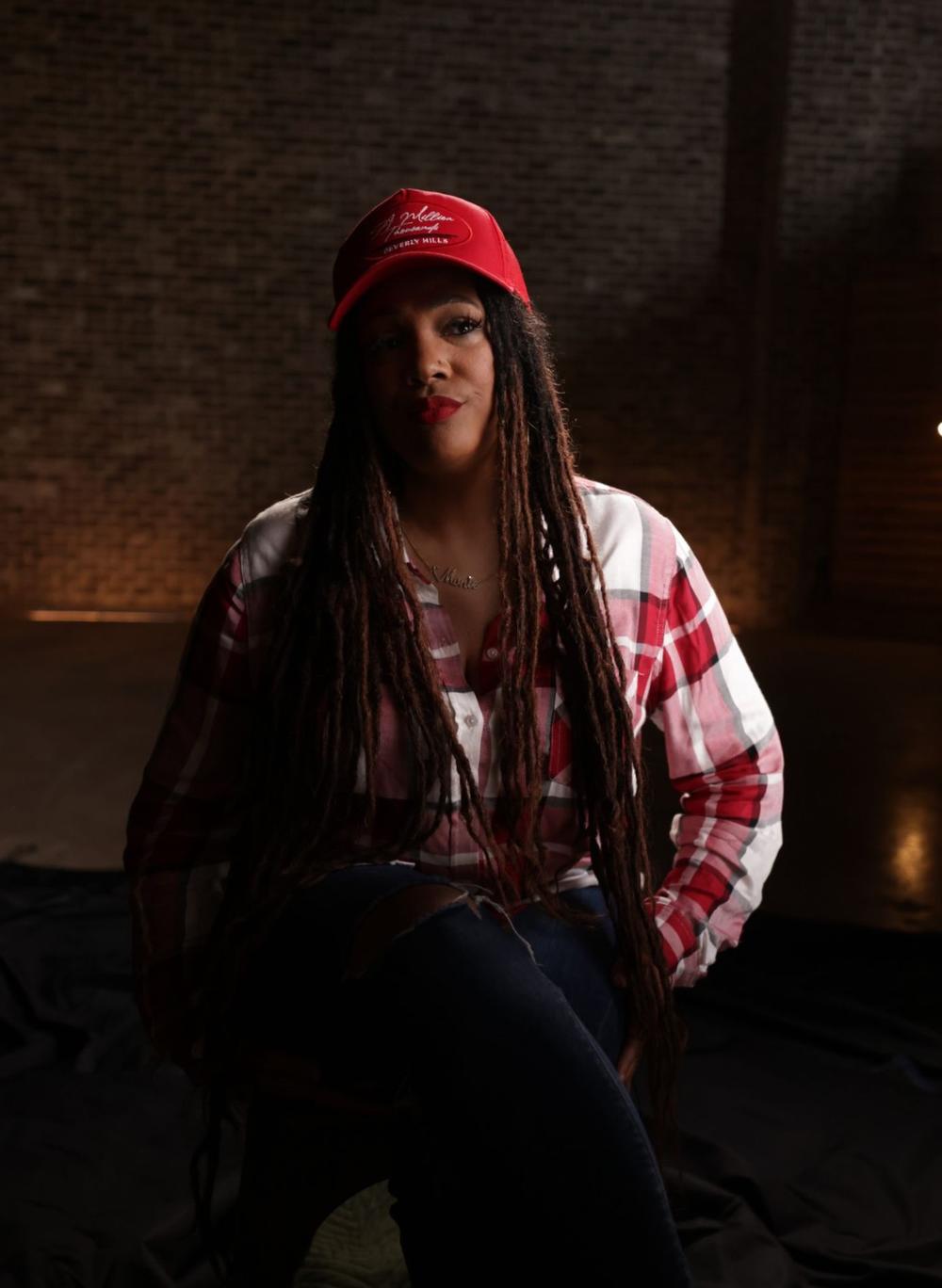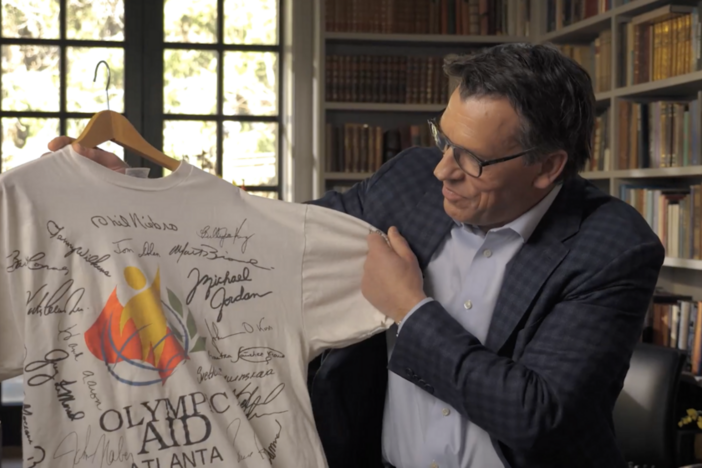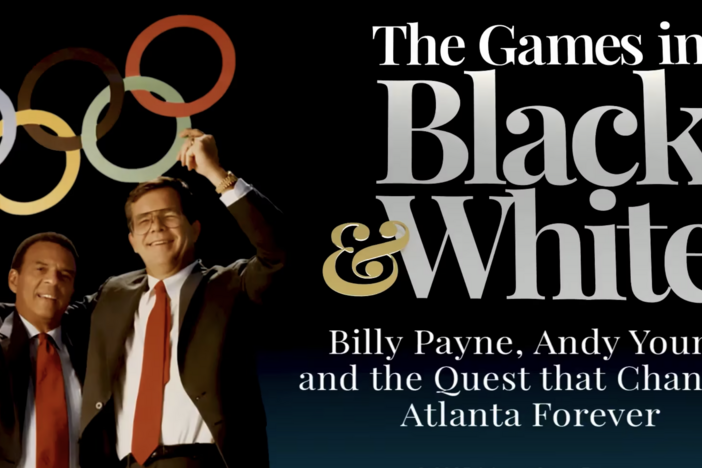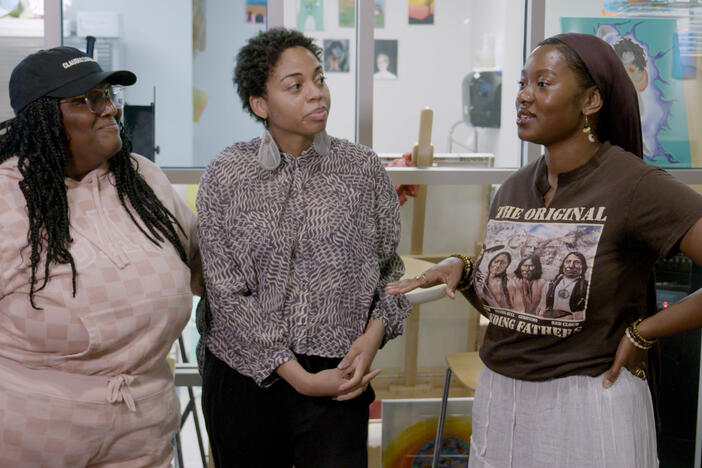
Section Branding
Header Content
About The South's Bit Part In Fight The Power: How Hip Hop Changed The World
Primary Content
Fight The Power: How Hip Hop Changed the World opens on the May 2020 night Atlanta felt like it was being set aflame, again, with protests and destruction downtown all the way up to looting and destruction in Buckhead.
It is narrated by an Atlanta resident (at least most of the rime). And it includes contributions from a Grammy-winning, native Atlanta rapper (Killer Mike) and an Atlanta transplant who earned her fame as a hip-hop artist, but now is a radio personality whose station plays hip-hop and R&B (Monie Love).

There's even a scene with Atlanta's first Black mayor, the late Maynard Jackson.
But this expansive, must-see take on hip hop at the half century mark, told in four, one-hour parts never squarely turns its cameras to southern artists and their contributions to the genre.
It's not supposed to, insists that aforementioned narrator - the legendary Chuck D of Public Enemy.
"It's not supposed to be telling the whole story of hip-hop at 50," he continues. "You can't tell that in four episodes.
"Hell, we're in the third season of Bridgerton!" D adds with a laugh.
"This is about the sociopolitical forces that made this art form. If hip-hop is the rose that grew from concrete, this is about the concrete...The environment always creates some kind of art form."
So to bring that point immediately home, Fight The Power - which concludes tonight on GPB at 9 p.m. - begins with a tearful Killer Mike lending voice to the pain the world seemed to feel after witnessing the murder of George Floyd at the knee of a police officer; while at the same time trying to quell the unrest in his city.
"I watched a White officer assassinate a Black man and I know it tore your heart out, and I know it's crippling. And I have nothing positive to say in this moment, Because I don’t want to be here."
Nonetheless, there the artist born Michael Render stood at a press conference flanked by then-Mayor Keisha Lance Bottoms and then-Chief of Police Erika Shields, because he was" duty-bound to be here to simply say: Now is the time to plot, plan, strategize, organize and mobilize."
"And that is what hip-hop has been great at for 50 years," D asserts. "Responding to the situations it's been in."
Be it the decimated, impoverished boroughs of New York City described in Grandmaster Flash & The Furious Five's 1985 single "The Message." The corruption among officers and brazen brutality in the Los Angeles-area streets that wrought gangster rap. and NWA's 1988 ["Expletive tha Police"]. Or the racial tensions back on the east coast that prompted director Spike Lee to ask Chuck and his group to come up with an anthem for the moment. The result: 1989's "Fight The Power."
"Sounds like 2023, right?" D says with another laugh, this time more wry. "Sounds like what we're dealing with right now. That's why I'm still at this.
"This is my military. This is my service."
And these days his artillery includes The Hip Hop Alliance, a labor union he co-founded with fellow pioneers Kurtis Blow and KRS-ONE. And what D's billing as "the world's first cultural media app," BringTheNoise, is wrapping up its trial period.
"And we call it a cultural media app, not a social meda app, because it's focused. TikTok for [those] 35 and over - but it's not uninviting to those under."
Then D chuckles yet again, as if sensing how people might take that last line from the often sober statesmen of the culture.
"I know I may come off as grumpy," he offers. "I'm 62. I guess I could qualify as a cranky old man...but I'm serious about hip-hop and how it's treated."
This expansive, must-see take on hip hop at the half century mark, told in four, one-hour parts never squarely turns its cameras to southern artists and their contributions to the genre. Here's why.





